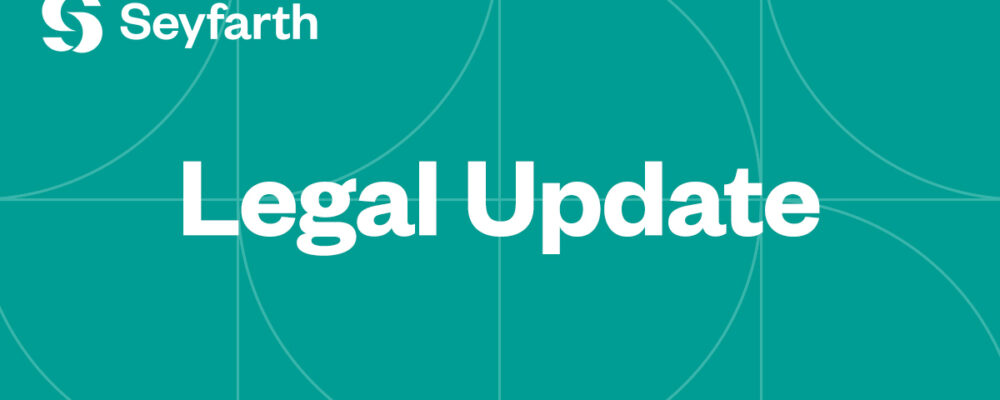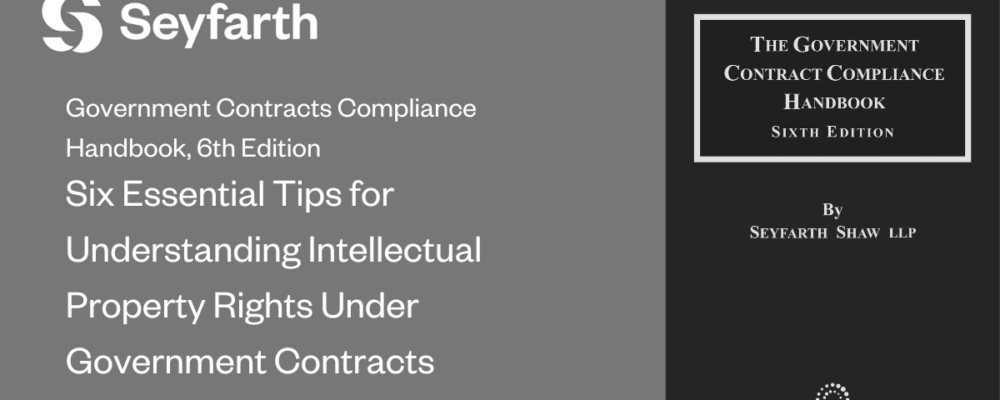Overview
President Trump’s February 10th Executive Order (EO) titled “Pausing Foreign Corrupt Practices Act Enforcement to Further American Economic and National Security,” has introduced significant uncertainty into FCPA enforcement. Despite this companies should remain committed to their compliance efforts and consider whether this is an appropriate time to amplify to staff and stakeholders their corporate expectations. Maintaining and promoting robust Code and ABC programs, monitoring regulatory priorities in domestic and international enforcement policy, will be key to navigating this evolving landscape. With global anti-bribery frameworks still firmly in place, businesses must stay proactive in mitigating cross-border risk and upholding ethical standards, while ensuring they are prepared for any future changes in FCPA enforcement.
This update covers the considerations and some practical steps for leadership and corporate compliance teams to take now.
Strategic Implications
The EO does not change the FCPA itself—only Congress can amend the FCPA statute. Instead, it affects how the Department of Justice (DOJ) prioritizes enforcement. While the Securities and Exchange Commission (SEC) is not specifically mentioned in the EO, it is expected to follow the DOJ’s lead in adjusting its approach.
The EO proclaims that the FCPA has been “stretched beyond proper bounds” and “abused in a manner that harms” US interests. It highlights the importance of gaining strategic business advantages, such as access to critical resources and infrastructure to U.S. national security.
During a 180-day review period, the EO directs the Attorney General (AG) to:
- Pause new FCPA investigations and enforcement actions (unless an individual exception should be made).
- Review all existing cases and take “appropriate action.”
- Issue updated enforcement guidelines to “adequately promote” the President’s authority to conduct foreign affairs and prioritize American interests, economic competitiveness, and efficient use of federal law enforcement resources.
- Potentially extend the pause for another 180 days at the AG’s discretion.
- Determine whether past FCPA investigations were inappropriate and take remedial action if necessary.
New enforcement guidelines could consider the significance of infrastructure and assets that align with national security priorities, such as semiconductor supply chains, energy and transportation infrastructure, space security, and communications.
Additionally, the EO may influence whether future enforcement is applied equally to U.S. and non-U.S. companies. How this balance of enforcement may change is unclear, as under current trends, only one of the ten largest FCPA penalties has involved a U.S. company.
Key Takeaways for Corporate Leaders
As the U.S. government reviews its FCPA enforcement priorities, corporate leaders should remain vigilant and proactive in upholding corporate commitments to anti-corruption standards. Although the enforcement pause arguably provides temporary relief, businesses must be steadfast on strong compliance programs and ethical practices to safeguard their operations and reputations, particularly at a time when individuals might feel newly emboldened to engage in risky activity as a result of misinterpretation of the EO, including in various media channels, as an invitation to engage in conduct prohibited by the FCPA, directly or through intermediaries. Compliance leaders should consider whether this is a good time to generate reminders or training refreshers as to the company’s behavioural, conduct and reporting expectations.
1. Business as Usual: Keep Calm and Carry On
Its incontrovertible that companies should continue operating as before, without relaxation of corporate policy or standards. The FCPA is still good law with a five year statute of limitations – meaning an investigation and enforcement action of current conduct could occur in the next administration if the EO is rescinded by the next president. Importantly, the EO also does not alter U.S. state law or international expectations; bribery and corruption will not be condoned by other governments, investors, or regulatory bodies. Many jurisdictions maintain stringent anti-corruption frameworks, and companies operating globally must remain compliant with multiple legal regimes.
2. ABC Policies: The Show Must Go On
Organizations should uphold their Anti Bribery and Corruption (ABC) policies and procedures, ensuring they align with corporate values and regulatory obligations. U.S. listed companies are still subject to their own Codes of Business Conduct, which will inevitably prohibit FCPA violation and perhaps also commercial bribery. Many Codes are drafted to expressly impose a “higher” standard as to ethical conduct than that under applicable law.
3. Compliance: The Secret to Success
Strong compliance programs not only mitigate legal risks but also promote ethical corporate cultures, enhancing transparency, resilience, and long-term financial stability, by preventing waste and abuse. These programs take years to develop and foster trust among stakeholders, including employees, investors, shareholders and regulators. This trust can be quick to break as a result of one or two rogue incidents motivated by a misinterpretation of the finer points of the EO and the US legal framework, including in the international press or social media, where we know such misinterpretation can be rampant.
Issues for Consideration
Below are key factors for businesses to consider as they navigate the evolving landscape of FCPA enforcement and international anti-corruption dynamics.
1. Enforcement Pause: A Temporary Reprieve
The EO is a temporary measure. As noted, Companies need to recognize that the statute of limitations for FCPA violations is generally five years from the last act of bribery (or up to eight years with foreign involvement, and potentially longer with tolling provisions). Even assuming the pause of FCPA investigations and prosecutions continues through President Trump’s term, if a new administration revokes the order, corporate misconduct occurring during this pause could still face prosecution then.
2. U.S. Companies: Still in the Crosshairs
While the DOJ may pause enforcement, the vast majority of the world will continue to enforce against the bribery of foreign officials which means enforcement mechanisms outside the U.S. remain intact. Accordingly, U.S. companies remain exposed to investigations and prosecutions in the countries where bribery occurs as well as potential other foreign jurisdictions impacted by the conduct. Indeed, other jurisdictions are likely to step in to fill the gap, leveraging their own anti-bribery laws to hold companies accountable. As a result, businesses should not assume reduced FCPA enforcement translates to lower global enforcement risks. To the contrary, companies should anticipate continued scrutiny from non-U.S. regulators and enforcement agencies.
3. OECD Treaty: Walking a Fine Line
Any future DOJ guidelines that prioritize U.S. economic interests over anti-corruption enforcement could potentially violate Article 5 of the OECD Anti-Bribery Convention, which explicitly prohibits enforcement decisions from being influenced by national economic considerations. Given the EO’s stated intent, concerns exist that future guidance may not be drafted in a way that avoids breaching this international obligation.
4. State-Level Prosecutions: The Empire Strikes Back
Many U.S. states have their own anti-corruption statutes that could be used to investigate bribery of foreign officials. Various state authorities, particularly State Attorneys General from Democratic-led states, may attempt to fill the enforcement void. Where state legislation and sufficient jurisdictional grounds exist, companies may still face investigation for misconduct traditionally overseen by federal regulators. Additionally, some local prosecutors, such as the Manhattan District Attorney’s Office, which has a track record of pursuing complex cross-border financial crime, may shift attention toward foreign bribery cases.
5. Policy Re-evaluation: A New Dawn?
Rather than a complete rollback of the FCPA, it is more likely that the policy’s application and prosecutorial discretion will be reevaluated. A full revocation of the FCPA would require congressional action, which remains an unlikely scenario. Instead, companies should prepare for shifts in enforcement priorities, potentially favoring more lenient interpretations rather than outright non-enforcement.
6. Jurisdictional Conflicts: Tug of War
The pause on FCPA enforcement may create jurisdictional challenges and conflicts in evidence and intelligence sharing. Countries that are signatories to the United Nations Convention Against Corruption (UNCAC) are obligated to collaborate in corruption investigations. Additionally, many nations have bilateral Mutual Legal Assistance Treaties (MLATs) with the U.S., requiring ongoing cooperation. These agreements could create tensions if U.S. authorities attempt to limit enforcement while international obligations push for continued collaboration.
7. Global Impact: The Domino Effect
If key international players perceive the U.S. shift as an opportunity to scale back their own enforcement, global anti-bribery efforts could weaken. However, given the strong commitment of many jurisdictions to international anti-corruption treaties, it is equally possible that some countries will maintain or even increase their enforcement activities in response.
We encourage you to reach out to your Seyfarth contact if you have any questions.
“With approximately 900 lawyers across 17 offices, Seyfarth Shaw LLP provides advisory, litigation, and transactional legal services to clients worldwide.”
Please visit the firm link to site






